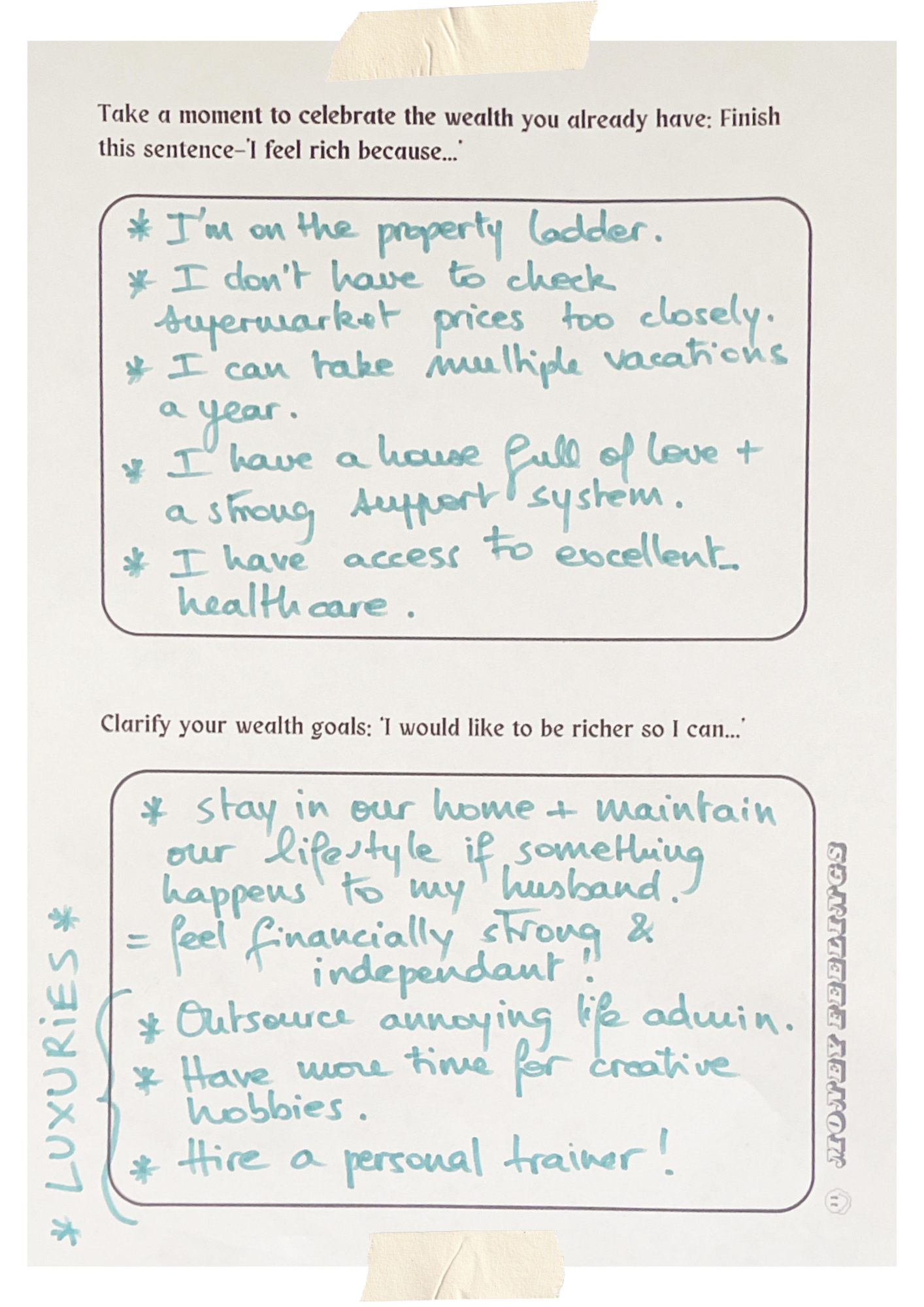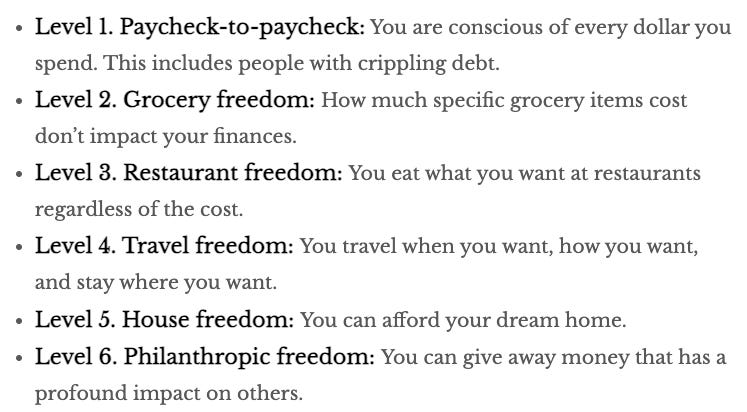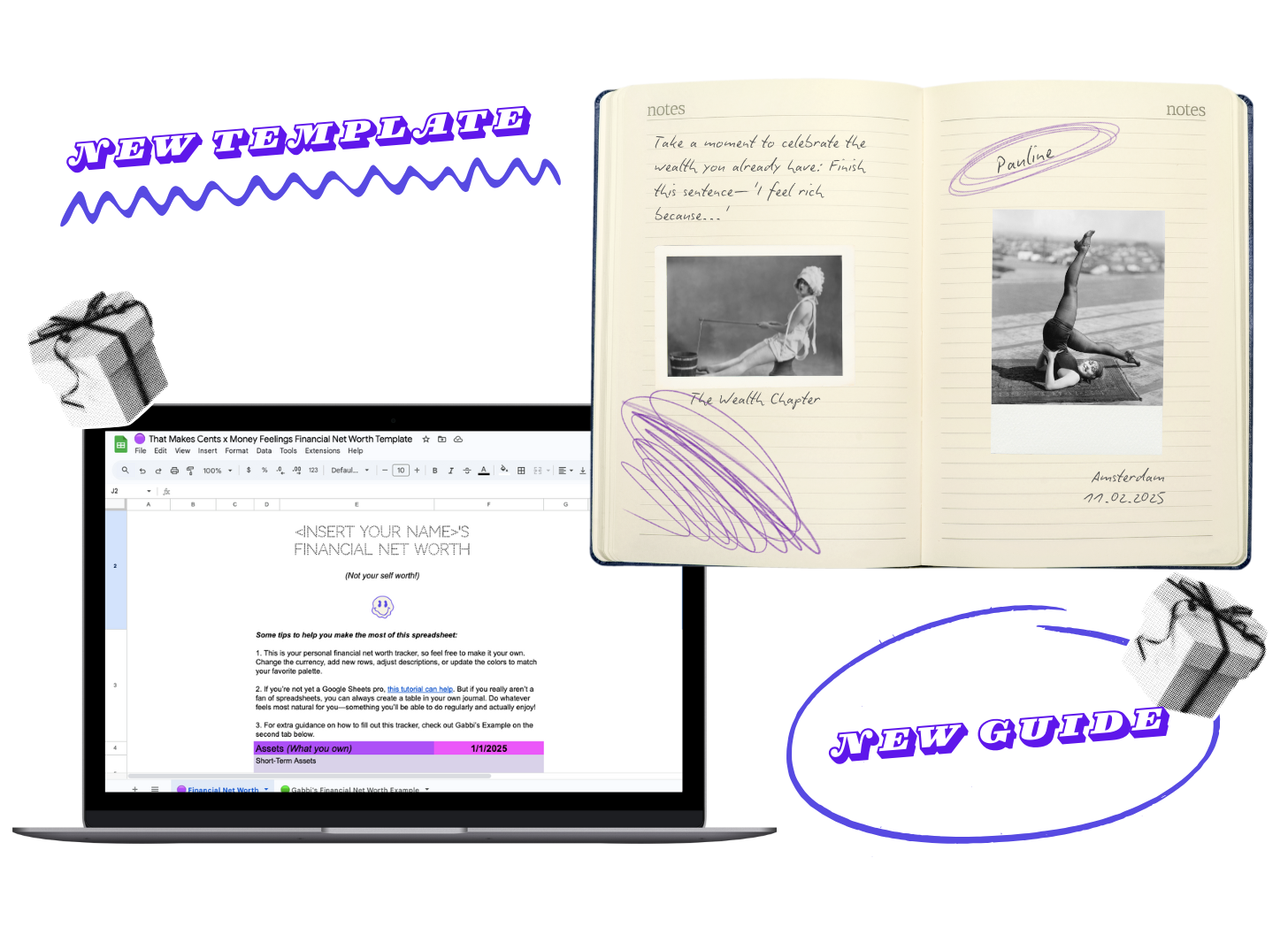
This is where I’m at. Not in great detail, but enough to get a good picture of where I stand on the wealth ladder.
I know some people would say I’m already rich. Too rich, even. A personal trainer is a ridiculous luxury. No one needs to go on trips more than every other year. How can she need more?
Others might read this from a lounge chair at their quarterly yoga retreat in Bali and not be particularly impressed.
Because there’s always someone who has more and someone who has less. And whatever you say at whatever stage of wealth you are, it will upset someone. I completely get it. When someone has more, sometimes a lot more than us, it’s very difficult to understand they could still experience financial stress, the fear of not having enough or just the desire for more.
But there are so many reasons why someone with “everything” could still feel all these things.
One of them is that how actually wealthy we are can be completely disconnected from how wealthy we feel.
Some people earn €50,000 per week and still feel like they’re falling behind. Others earn the same amount per year and feel completely satisfied.
So that same person reading this from their quarterly yoga retreat in Bali might not be impressed by my wealth situation, but they might also not feel as rich as I do.
Being rich ≠ feeling rich 👇
It’s one funny example, but this disconnect isn’t just for the ultra-wealthy! Most of us experience it in some way.
Because our brains are wired to constantly chase more. The hedonic treadmill means we quickly get used to what we have and start craving the next thing.
And that matters because when we don’t feel rich, we might avoid investing because we believe we don’t have “enough” to start. Or we overwork, neglecting our health and relationships. Some of us struggle to share or give, fearing scarcity even when we’re objectively secure.
That’s why it’s so important to (re)align our objective wealth with our feeling of wealth. It’s like adjusting the volume on your headphones: too quiet and you can’t hear the music, too loud and it’s overwhelming. You need it at the right level to enjoy the experience.
Today, I’ve teamed up with financial coach and planner Gabbi Cerezo on a tool and concrete exercises to help us:
✅ Understand exactly where we stand financially.
✅ Visualize, acknowledge, and appreciate what we have.
✅ Clarify where we want to go, far from the hedonic treadmill.
🟣 How Actually Rich Are You? [3½ Exercises]
1. Calculate Your Net Worth With Gabbi Cerezo
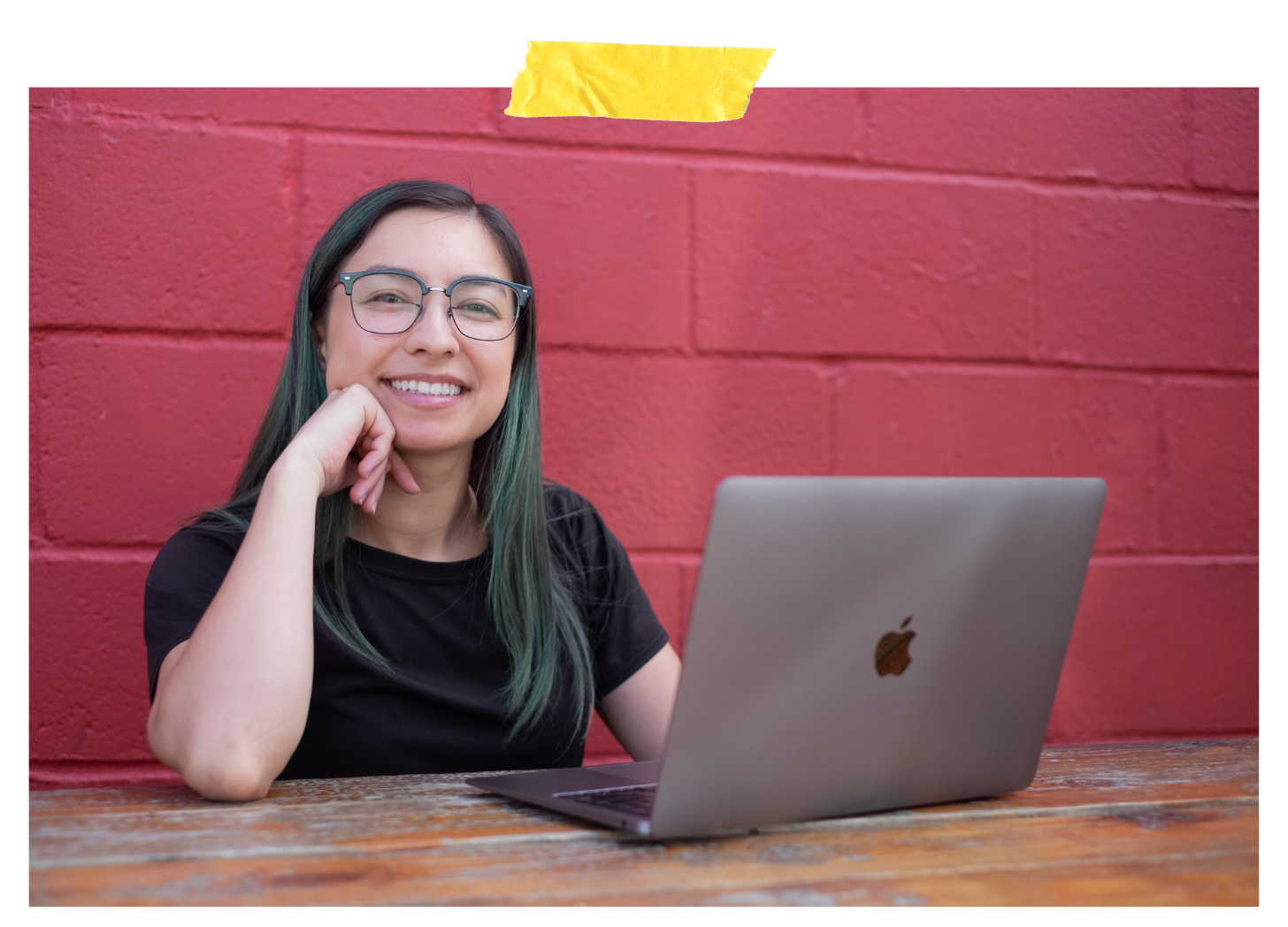
Here’s what Gabbi suggests for you today:
Part of being and feeling rich means knowing where you stand financially and I'm a firm believer that you should only be comparing yourself to yourself. Nobody else has the same life or experiences as you, so there'd never really be a truly fair comparison!
To calculate your financial net worth, you'll want to make a list of everything you OWN and everything you OWE.
You can create this following the steps below.
🔒 Or fill out our spreadsheet template (for paid subscribers only).
THE STEPS:
Take a piece of paper or open a blank spreadsheet and put the Month and Year at the top (like February 2025).
On the left side, start by listing out all of the accounts that you can think of - your checking accounts, savings accounts, investment or retirement accounts, property (like a home if you own one), even that expensive camera or road bike that you own. Don't forget to add a list of all the accounts where you owe money too - think of your credit cards, auto loans, mortgage, student loans, money that you owe your sister...
Then next to each item, list out the current value or account balance (if in a spreadsheet, go to the next column). If you owe money on something, you list how much you owe as of today.
Now add all of the stuff you OWN up and keep track of that number somewhere on the paper or spreadsheet.
Then add up all of the stuff you OWE and keep track of that number somewhere on the paper or spreadsheet.
Take the total number for the stuff you OWN and subtract the total number for the stuff you OWE and that leaves you with your financial net worth! Ta-da! You've done it!
Set a calendar reminder to do this same exercise again in a few months or even 1 year from now. You'll want to check-in on this number periodically, just like your doctor might keep track of your blood pressure each time you go into your annual appointment.
Remember that your financial net worth is NOT equal to your self-worth - it's just one way to measure your wealth, out of many, many ways!
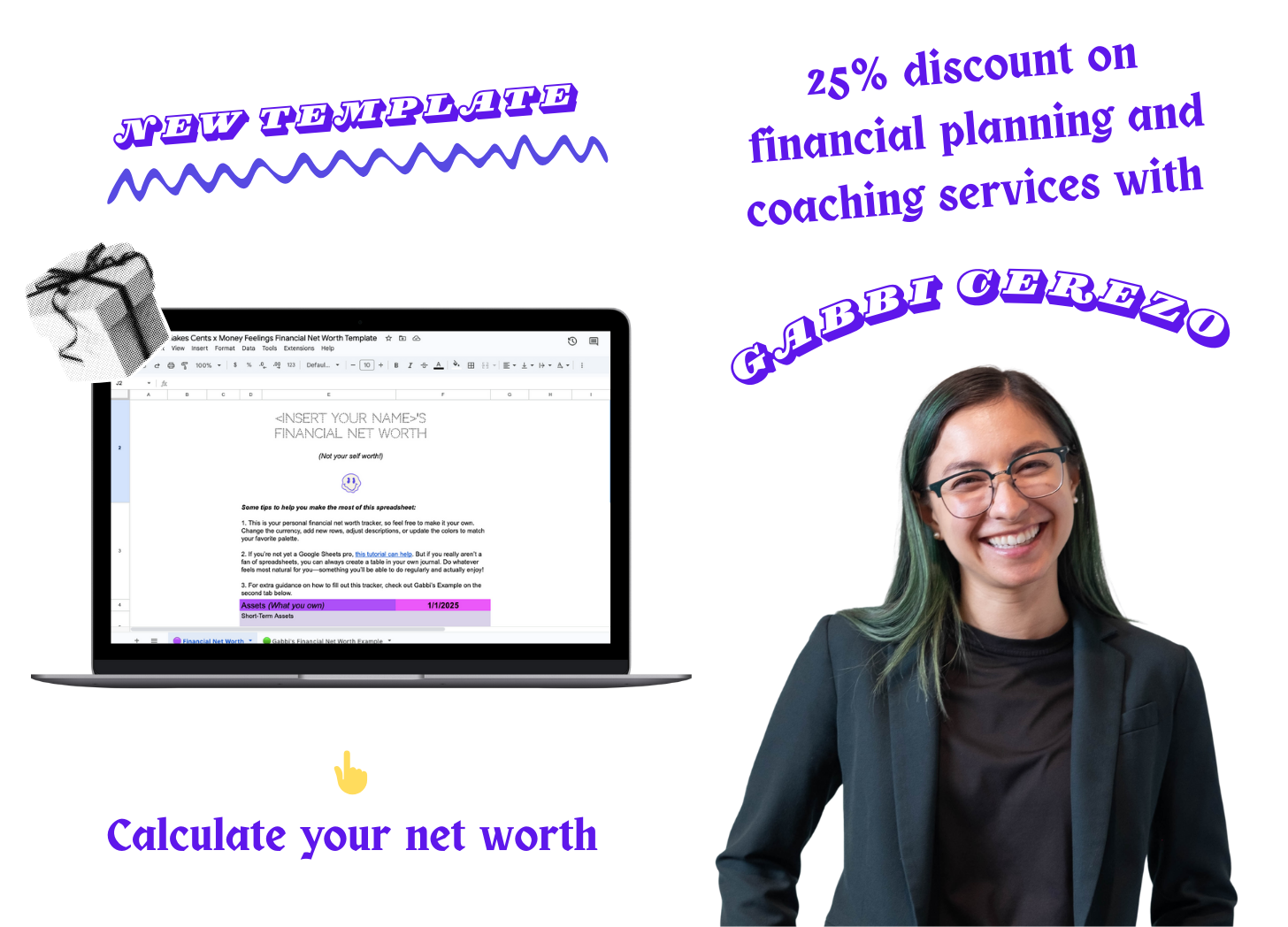
2. Understand Where You Stand Globally
Now I invite you to take the How Rich Am I test developed by the organization Giving What You Can. This organization was founded by ethics researchers at Oxford, to encourage people to donate 10% of their income regularly to fight global poverty.
I like their test because unlike the endless comparison game we often play, this one offers a broader perspective and in my experience, helps us see that we may be doing better than we think while also highlighting the impact our generosity could have.
3. Take The Maggiulli Test
If I gave you $100, would that change your life? What about $100,000? How about $100 million? Your answer will depend on many things including age, family situation, and your current net worth. More importantly though, how you change your behavior after receiving such money can tell you a lot about your current financial standing.
Nick Maggiulli, in Climbing the Wealth Ladder
Based on this idea, Nick Maggiulli proposes a way to understand your level of wealth, which I find interesting because it’s grounded in our everyday habits. He outlined six different steps or stages on the "Wealth Ladder." These steps reflect how you might feel about a financial decision, depending on your financial level:
So! How did these exercises feel for you? Did they bring more clarity about where you stand financially? Did they spark any insights? Maybe they brought up new questions? If so, let me and Gabbi know in the comments.
💜 How Rich Do You Feel? [1 Big Exercise]
Now, let’s take it a step further!
You could start by taking the same exercise I shared at the beginning of this session. It’s all about recognizing the wealth you already have and getting a clearer view of what you want to achieve moving forward. 👇
But this is just a snapshot of something much more ambitious I’ve prepared for you!
I’m inviting you on a guided reflection—outside of the screens!!—just you and a pen—to redefine what wealth truly means to you, analyze your limiting beliefs, and use practical tools and challenges to realign your wealth with feeling wealthy.
I think you’ll love it if you're already into writing and journaling. But if you cringe at the thought of writing and journaling, you probably need it more. 😉
This PDF is one of the chapters from the Money Feelings Workbook, the guided journal on your money psychology, exclusively for paid subscribers. If you're already one, you’ll find the full chapter there. If you see the paywall, you can unlock it by upgrading your subscription.
Got questions? I’m always here if you want to reach out!





